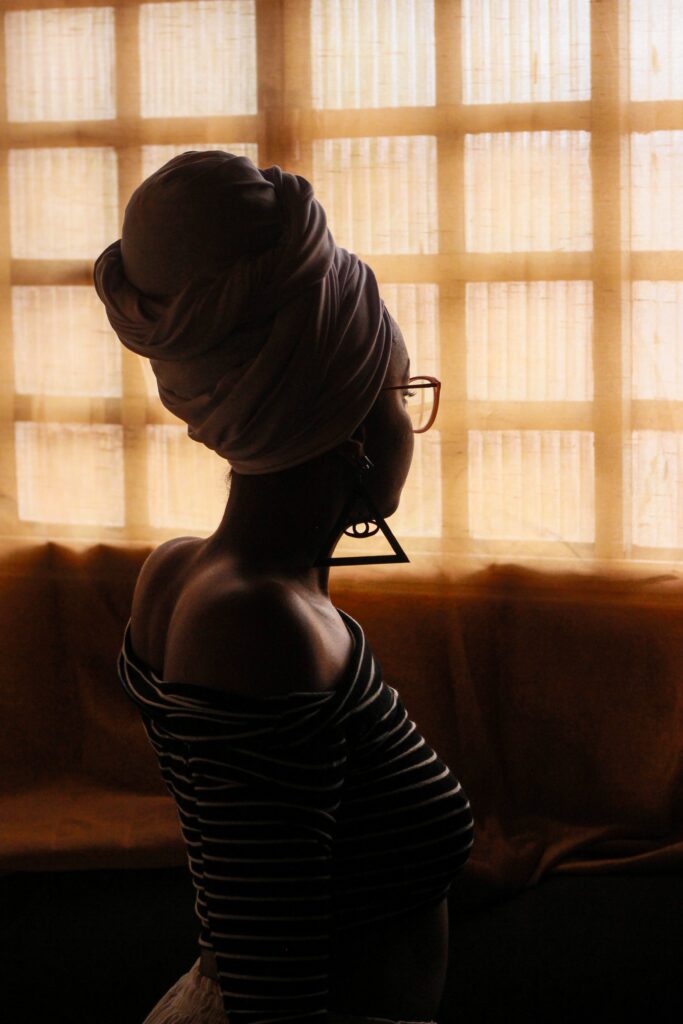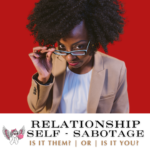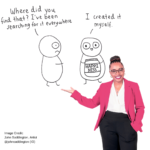Hey Baby, what EXACTLY, is INTERSECTIONALITY?

How would you explain intersectionality and this other concept called “womanism”?
________________________
I have a great relationship with an 89-year-old woman, who just happens to be my great grandmother’s oldest living niece. We talk at least three times a week, and we talk about everything. I refuse to handle her with kid gloves just because of her age. I give her the same honesty that I give my agemates. By the same token, I also realize that her age also gives her a unique position in my life. On one hand, she is a tremendous link to the past in general and in terms of my family’s culture. On the other hand, she doesn’t get out a lot and her use of the Internet is limited (yet, she knows Amazon!). This means that she isn’t necessarily up to speed on all of the “of the moment” stuff taking place in the world. Thus, I make it my job to make sure she is clued in.
So, the other day, I was getting ready to do some writing and she asked me what I was going to write about, and I said, “intersectionality”. Although nearly everybody has been talking about it lately because of the renewed focus on #RacismInTheWorkplace and #GeorgeFloyd, I knew she had no idea what that meant. Here’s a snippet of our conversation:
________________________
Her: What are you going to do today?
.
Me: I’m writing about intersectionality. Intersectionality is the idea that… Okay, you know how black people are discriminated against?
.
Her: Yeah.
.
Me: And you know how it can happen in any way, in your personal life or at work?
.
Her: Uh huh.
.
Me: Well, add to that being a woman. So, think about it like this: what are all the ways that people have treated you poorly or differently because you’re a woman? You know how women are treated when they are a certain age and don’t have children? When women are outspoken and called bitches? Well, imagine if you were at work and being mistreated because you are black. Then, people questioned whether something was wrong with your personality or body because you didn’t have kids, but also expected you to work late because they assume that you don’t have anything else to do since you don’t have kids. Or you might be treated differently just because you have kids, maybe you’re locked out of chances to move up because they think a mother will have childcare problems that will keep her from coming to work? And if you don’t seem happy about how you’re treated, then you’re the bitchy, angry black woman? That’s abuse is because you’re a woman and because you’re black. Then, when you get home, your husband lords over you because that’s his position as a man, i.e., he has the last say in decision-making, there are certain things that you have to do just because you’re a woman and he thinks it’s your job, or you’re the only person helping to take care of your aging mama because your brothers aren’t expected to. Intersectionality is about how the pieces of who you are come together and impact your life.
.
Her: I see. My step daddy was like that. He used to beat his children like they were animals. But he didn’t fool with me. You know, he stood right here in my house and told me that he didn’t like me because I always thought I was better. I didn’t think I was better, but I’ve always stood up for myself.
.
Me: But do you think the fact that you wouldn’t submit to the expectations of what you were supposed to do as a female and younger than him, impacted how he treated you? Did he beat his sons like he beat the girls?
.
Her: No, he didn’t. He liked to killed my step-sister one time because he caught her having sex.
.
Me: Did anybody say anything to the boy she was having sex with?
.
Her (silent pause)….
.
Me: This is what I mean by how your identities intersect. The guy didn’t get into trouble because he was free to have sex as a man. But as a female, and unmarried at that, she was expected to be a virgin until she married. She, and you were too, was impacted at home more because of being a woman, but out in the street, you’re black first, then a woman. You see? Think about it. Why didn’t you get married?
.
Her: I didn’t need no “effin man” (I can’t type what she really said…LOL) over me, telling me what to do. All marriage was was permission to screw! I made my own money!!!
.
Me: Exactly!!! You didn’t want gender, being a woman, to put you in particular role and dictate your choices at home. And just think, although you made your own money, if you did the same job as a man, you probably didn’t get paid what he made just because you were a woman. And you probably would’ve made even more money is you were a white woman.
.
Her: What made you want to write about shit like that?
________________________
I shared this snippet because I thought it was more interesting than what I was originally going to write. I loved our conversation because it shows how intersectionality is something that people understand even if they don’t know the terminology. In particular, it’s important for black women to explore how to understand the concept and be free to advocate for respect for their whole selves, their gender and their race. As black women, we are often asked to choose to support blackness to stand in solidarity with black men while many of our issues are ignored by white feminists. So, the woman who wrote, “The Color Purple”, Alice Walker, created a concept called “womanism” to analyze what it means to be both black and a woman.
So, I challenge you to look at your life to see intersectionality at work. Then, think about how your race meshes with your age, your gender, and whether you have a disability. Now, add other identifiers that can’t necessarily be seen like your social/class background, your marital status, your parental, and your sexual orientation. All of these pieces of you impact both how you are perceived by others, how you’re treated, and sometimes how you see yourself. While you think about it, check out this video by Kimberle Crenshaw. Now, here are some of the places where intersectionality has impacted my life…. Feel free to share yours in the comments!





